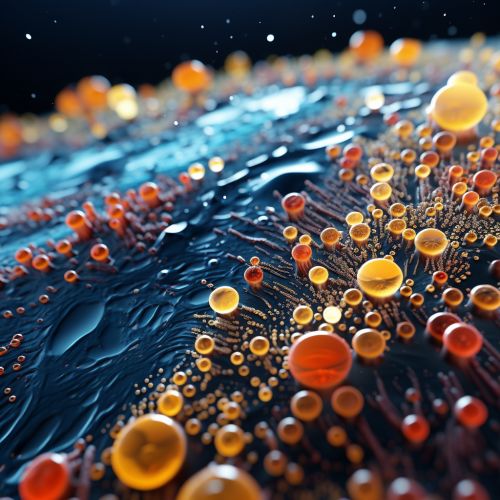Dysbiosis
Overview
Dysbiosis is a term for a microbial imbalance or maladaptation on or inside the body, such as an impaired microbiota. This condition is most commonly associated with the gut, but can occur in any bacterial ecosystem within the body, including the skin, mouth, lungs, nose, sinuses, ears, nails or eyes.


Causes
Dysbiosis is often caused by a combination of factors, including poor diet, stress, lack of sleep, antibiotic use, and other lifestyle factors. These factors can disrupt the balance of bacteria in the body, leading to dysbiosis.
Diet
A diet high in processed foods, sugar, and unhealthy fats can lead to dysbiosis. These types of foods can promote the growth of harmful bacteria and yeast at the expense of beneficial bacteria, leading to an imbalance.
Antibiotics
The use of antibiotics can also lead to dysbiosis. While antibiotics are effective at killing harmful bacteria, they can also kill beneficial bacteria. This can disrupt the balance of bacteria in the body, leading to dysbiosis.
Stress
Chronic stress can also contribute to dysbiosis. Stress can disrupt the balance of bacteria in the body, leading to an overgrowth of harmful bacteria and a decrease in beneficial bacteria.
Symptoms
The symptoms of dysbiosis can vary greatly depending on the individual and the severity of the imbalance. Some common symptoms include digestive issues such as bloating, constipation, or diarrhea, as well as fatigue, skin problems, and mood disorders.
Digestive Issues
One of the most common symptoms of dysbiosis is digestive issues. This can include bloating, constipation, diarrhea, and other digestive problems. These symptoms occur because the imbalance of bacteria in the gut can disrupt the normal digestive process.
Fatigue
Fatigue is another common symptom of dysbiosis. This occurs because the imbalance of bacteria in the body can disrupt the body's ability to produce energy.
Skin Problems
Dysbiosis can also lead to skin problems. This is because the skin has its own microbiome, and an imbalance in this microbiome can lead to skin issues such as acne, eczema, or psoriasis.
Treatment
The treatment for dysbiosis typically involves lifestyle changes to restore the balance of bacteria in the body. This can include changes to diet, the use of probiotics, and stress management techniques.
Diet
Dietary changes are often the first line of treatment for dysbiosis. This can involve reducing the intake of processed foods, sugar, and unhealthy fats, and increasing the intake of fiber, fruits, vegetables, and other foods that promote the growth of beneficial bacteria.
Probiotics
Probiotics are another common treatment for dysbiosis. Probiotics are live bacteria and yeasts that are good for your health, especially your digestive system. They can help to restore the balance of bacteria in the body.
Stress Management
Stress management techniques can also be beneficial in treating dysbiosis. This can include practices such as yoga, meditation, and other forms of stress relief.
